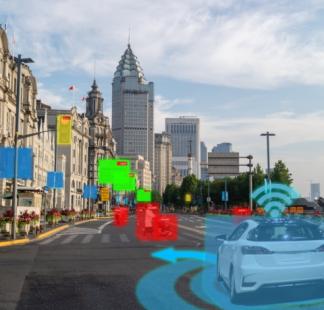Displaying 49 - 60 of 131
20 Apr 2026 - 23 Apr 2026
Online instructor led
The course explains the e-governance legal framework and its various components. The course introduces the e-governance general legal concept and the…
Registration:
Open until 17 Apr 2026
Languages:
- English
27 Apr 2026 - 29 Apr 2026
Online instructor led
In our interconnected world, Quality of Service (QoS) and Quality of Experience (QoE) are essential metrics for telecom regulators and operators.…
Registration:
Open until 06 Apr 2026
Languages:
- English
Open
Online self-paced
This training course empowers start-up and scale-up women entrepreneurs by developing green digital entrepreneurship knowledge and skills in order to…
Languages:
- English
04 May 2026 - 31 May 2026
Online instructor led
El curso ofrece una formación integral y práctica sobre cómo los procesos de transformación digital impactan la gestión pública, el diseño de…
Registration:
Open until 24 Apr 2026
Languages:
- Spanish
04 May 2026 - 08 May 2026
Face to Face
This 36-hour course is designed for policymakers, government officials, regulators, and ICT professionals eager to leverage emerging technologies to…
Languages:
- English
Open
Online self-paced
Focusing on protecting civilian aspects of cyberspace, this course covers the overarching principles and good practices in drafting, developing, and…
Languages:
- English
- French
- Russian
- Spanish
04 May 2026 - 22 May 2026
Online instructor led
This course is an advanced-level course in smart city design. It focuses on both theoretical and practical aspects of specific technologies that are…
Registration:
Open until 27 Apr 2026
Languages:
- English
05 May 2026 - 07 May 2026
Online instructor led
The course introduces the core principles of CIIP from a national cybersecurity perspective. Day one focuses on methodologies for identifying and…
Registration:
Open until 28 Apr 2026
Languages:
- English
Open
Online self-paced
This self-paced online course on inclusive digital communication during crises and emergency situations has been developed in response to the COVID-…
Languages:
- Arabic
- English
- French
- Spanish
11 May 2026 - 15 May 2026
Face to Face
This face-to-face training focuses on enhancing skills for using ICT statistics to design, monitor and evaluate public policies to achieve Universal…
Languages:
- English
11 May 2026 - 15 May 2026
Face to Face
The Multi-Sector Collaborative Regulation for School Connectivity course is designed to empower government officials, regulators, and…
Registration:
Open until 01 Mar 2026
Languages:
- English
Open
Online self-paced
The training course aims at raising awareness and increasing the capacity of ITU members, stakeholders and policy-makers to address the two global…
Languages:
- English
- French
- Spanish








